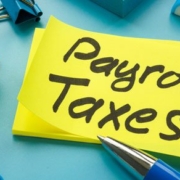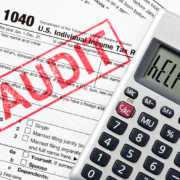Excess Business Losses Find Change in the CARES Act
- Find out how net tax losses from active businesses count as net operating loss carryforwards in the following tax year.
- Learn why your 2018 and 2019 returns may be amendable.
- Learn more about changes to the excess business loss limits due to the CARES Act.
The Coronavirus Aid, Relief and Economic Security (CARES) Act made changes to excess business losses. This includes some changes that are retroactive and may contain opportunities for some businesses to file amended tax returns.
If you hold an interest in a business, or may in the future, you need information about these changes. Luckily, Fiducial has that information for you..
Deferral of the excess business loss limits
The Tax Cuts and Jobs Act (TCJA) provided that net tax losses from active businesses in excess of an inflation-adjusted $500,000 for joint filers, or an inflation-adjusted $250,000 for other covered taxpayers, should count as net operating loss (NOL) carryforwards in the following tax year. The covered taxpayers include individuals, estates and trusts that own businesses directly or as partners in a partnership or shareholders in an S corporation.
TCJA scheduled adjustments made for inflation for tax years beginning after calendar year 2018 to the $500,000 and $250,000 limits. These adjustments will apply to tax years beginning in calendar years 2018 through 2025. But the CARES Act has retroactively postponed the limits. They did this so that they now apply to tax years beginning in calendar years 2021 through 2025.
The postponement means that you may qualify to amend:
- Any filed 2018 tax returns that reflected a disallowed excess business loss (to allow the loss in 2018) and
- Any filed 2019 tax returns that reflect a disallowed 2019 loss and/or a carryover of a disallowed 2018 loss. This allows the 2019 loss and/or eliminates the carryover.
Note that the excess business loss limits also don’t apply to tax years that begin in 2020. Thus, such a 2020 year can function as a window to start a business with large up-front-deductible items. These items could include capital items 100% deductible under bonus depreciation or other provisions. They must also offset the resulting net losses from the business against investment income or income from employment (see below).

Changes made by the CARES Act
The CARES Act made several retroactive corrections to the excess business loss rules as originally stated in the 2017 TCJA.
Most importantly, the CARES Act clarified that deductions, gross income or gain attributable to employment aren’t taken into account in calculating an excess business loss. This means that excess business losses can’t shelter either net taxable investment income or net taxable employment income. Stay aware of that if you’re planning a start-up that will begin to generate, or will continue to generate, excess business losses in 2021.
Another change provides that an excess business loss is taken into account in determining any NOL carryover but isn’t automatically carried forward to the next year. And a generally beneficial change states that excess business losses don’t include any deduction under the tax code provisions involving the NOL deduction or the qualified business income deduction that effectively reduces income taxes on many businesses.
Furthermore, because capital losses of non-corporations can’t offset ordinary income under the NOL rules:
- Capital loss deductions aren’t taken into account in computing the excess business loss, and
- The amount of capital gain taken into account in computing the loss can’t exceed the lesser of capital gain net income from a trade or business or capital gain net income.
Have questions about this or other tax matters? Call Fiducial at 1-866-FIDUCIAL or make an appointment at one of our office locations. Ready to book an appointment now? Click here. Know someone who might need our services? We love referrals!
For more small business COVID-19 resources, visit Fiducial’s Coronavirus Update Center to find information on SBA loans, tax updates, the Paycheck Protection Program, paid sick and family leave, and more.









